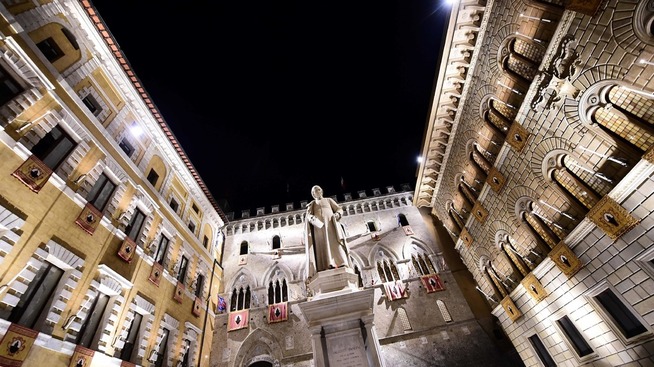the Government will set a total of 20 billion euro to 182 billion – at the disposal of Italy’s banks, says prime minister Paolo Gentiloni.
the Government’s disclosure comes shortly after the world’s oldest bank stated that a four-day long attempt to get about 45 billion in refinancing had failed.
Late Thursday night lit the bank that kriseplanen had failed. When the race time limit for aksjesalget, which together with the gjeldsombyttet and disposal of non-performing loans amounted to the plan.
along the Way in tegningsprosessen, it became clearer and clearer that the plan to attract so-called “ankerinvestorer”, i.e. the larger investors, went slow going.

The world’s oldest bank in the lack of time – do the last attempt krisegrep
Aksjonærtap
the Government seeks to ensure savings to the country’s citizens and make the banking sector stronger and more solid, ” says Gentiloni.
Even though the bank now gets a safety net, will according to the government, still imply that a number of the bank’s shareholders will lose money.
It happens because the bill is for redningspakken not exclusively the land of the people.
It was earlier in December that the Italian bank proposed to actors in the private sector to lead the way in bergingen of the bank. The european central bank has previously rejected a petition to extend the deadline to save the bank.
the Monte dei Paschi was in the summer brennmerket as Europe’s weakest bank in the stress tests of banks.
the Bank has been operational since 1472, and is considered the oldest utlånsbanken in the world.
More-pressed banks
Monte dei Paschi is regarded as the world’s oldest bank, and is Italy’s third largest. However, it is not the only one who is struggling with non-performing loans.
The Italian banking sector is eurosonens fourth largest, and sits on around a third of the union’s “bad” debt. It is now expected that the actors Banca Popolare Di Vicenza, Veneto Banca and Banca Carige may need a helping hand.
If the government uses all of the 20 billion that is available, it will be able to influence the country’s central government finances. The Italian national debt amounts to around 133 per cent of the country’s gross domestic product, only surpassed by Greece in the eurozone.
No comments:
Post a Comment